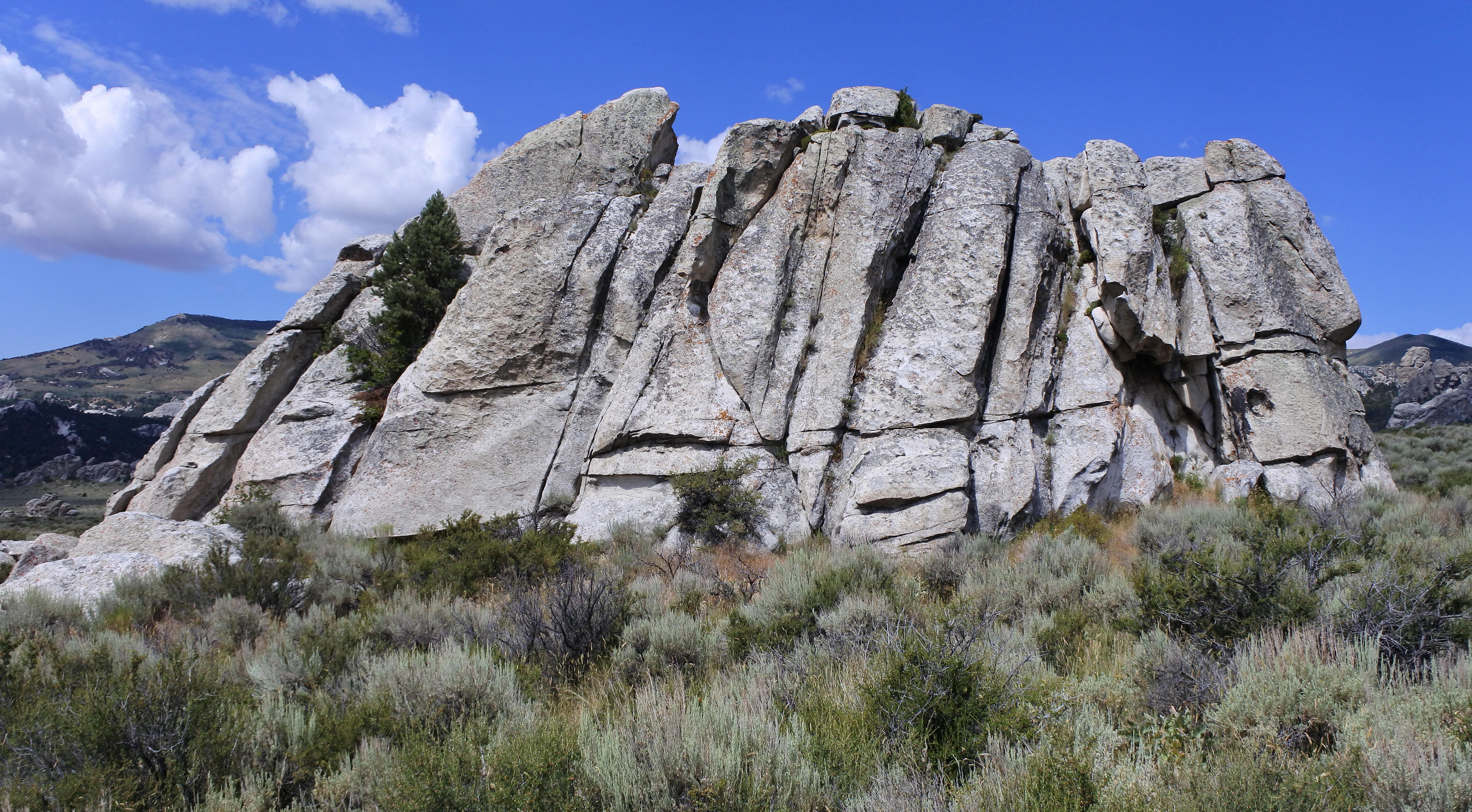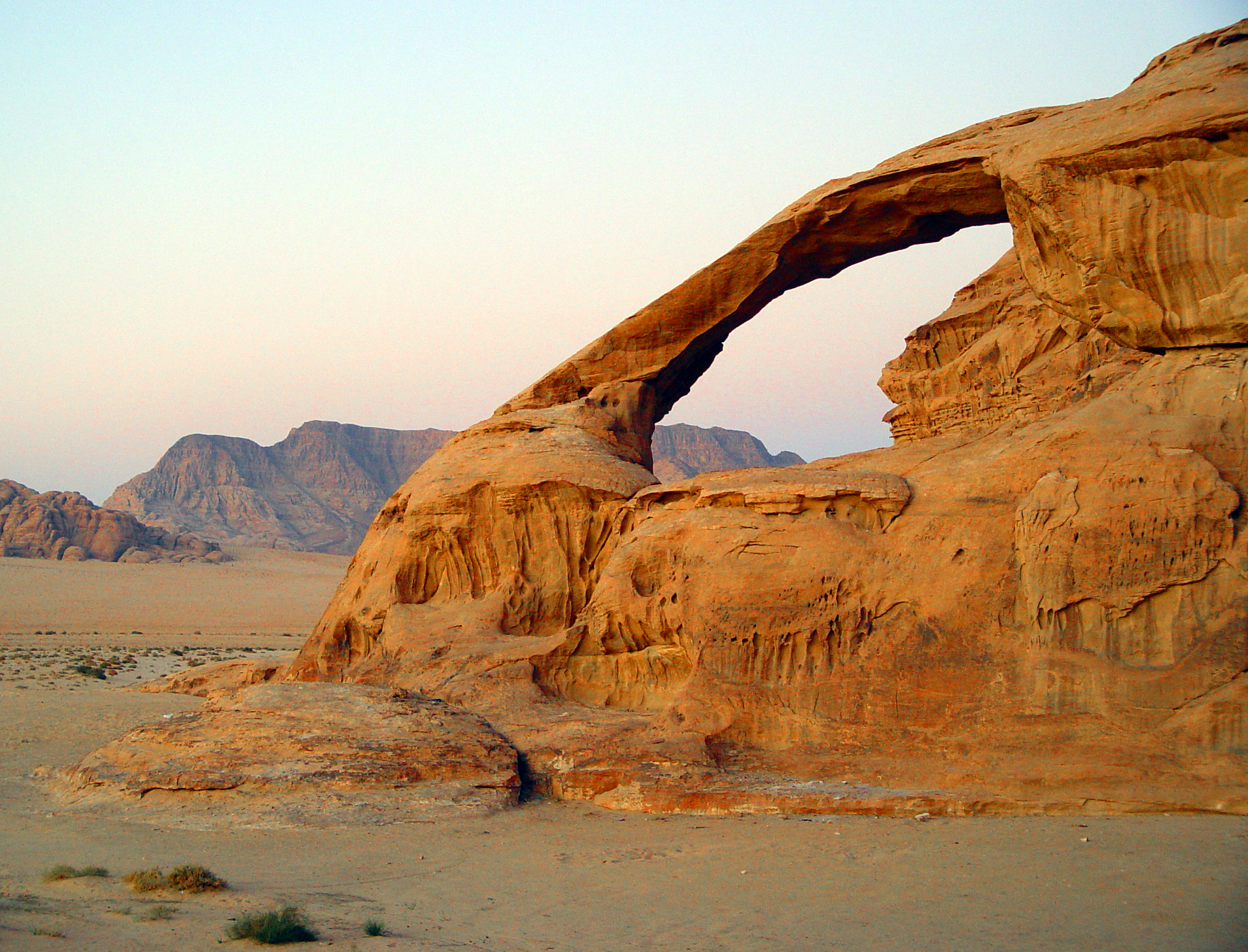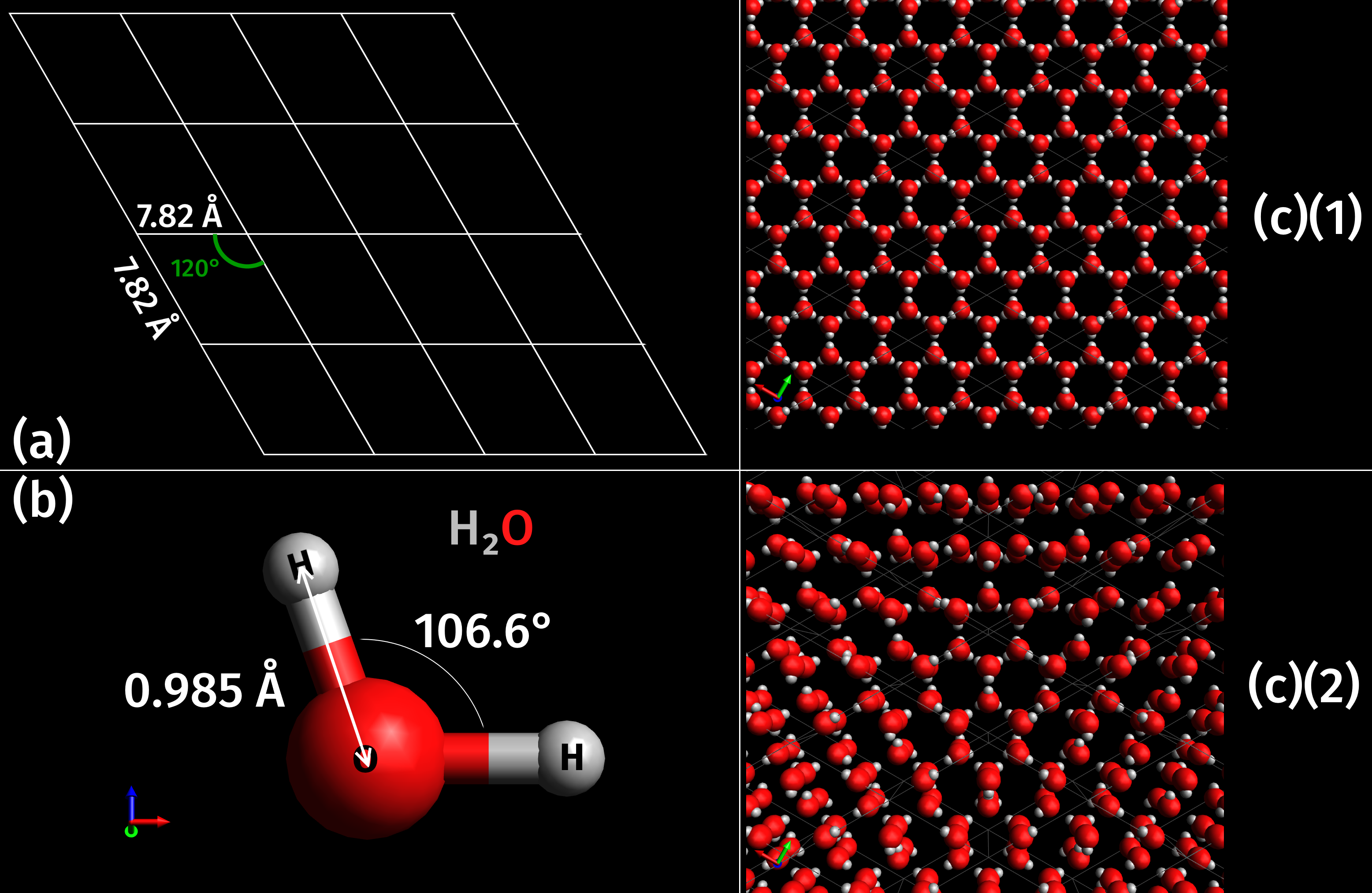|
Frost Weathering
Frost weathering is a collective term for several mechanical weathering processes induced by stresses created by the freezing of water into ice. The term serves as an umbrella term for a variety of processes such as frost shattering, frost wedging and cryofracturing. The process may act on a wide range of spatial and temporal scales, from minutes to years and from dislodging mineral grains to fracturing boulders. It is most pronounced in high-altitude and high-latitude areas and is especially associated with alpine, periglacial, subpolar maritime and polar climates, but may occur anywhere at sub-freezing temperatures (between -3 and -8 °C) if water is present. Ice segregation Certain frost-susceptible soils expand or heave upon freezing as a result of water migrating via capillary action to grow ice lenses near the freezing front. This same phenomenon occurs within pore spaces of rocks. The ice accumulations grow larger as they attract liquid water from the surrounding ... [...More Info...] [...Related Items...] OR: [Wikipedia] [Google] [Baidu] |
Petroleum
Petroleum, also known as crude oil, or simply oil, is a naturally occurring yellowish-black liquid mixture of mainly hydrocarbons, and is found in geological formations. The name ''petroleum'' covers both naturally occurring unprocessed crude oil and petroleum products that consist of refined crude oil. A fossil fuel, petroleum is formed when large quantities of dead organisms, mostly zooplankton and algae, are buried underneath sedimentary rock and subjected to both prolonged heat and pressure. Petroleum is primarily recovered by oil drilling. Drilling is carried out after studies of structural geology, sedimentary basin analysis, and reservoir characterisation. Recent developments in technologies have also led to exploitation of other unconventional reserves such as oil sands and oil shale. Once extracted, oil is refined and separated, most easily by distillation, into innumerable products for direct use or use in manufacturing. Products include fuels such as gasolin ... [...More Info...] [...Related Items...] OR: [Wikipedia] [Google] [Baidu] |
Joint (geology)
A rock in Abisko fractured along existing joints possibly by mechanical frost weathering A joint is a break ( fracture) of natural origin in a layer or body of rock that lacks visible or measurable movement parallel to the surface (plane) of the fracture ("Mode 1" Fracture). Although joints can occur singly, they most frequently appear as joint sets and systems. A ''joint set'' is a family of parallel, evenly spaced joints that can be identified through mapping and analysis of their orientations, spacing, and physical properties. A ''joint system'' consists of two or more intersecting joint sets. The distinction between joints and faults hinges on the terms ''visible'' or ''measurable,'' a difference that depends on the scale of observation. Faults differ from joints in that they exhibit visible or measurable lateral movement between the opposite surfaces of the fracture ("Mode 2" and "Mode 3" Fractures). Thus a joint may be created by either strict movement of a rock ... [...More Info...] [...Related Items...] OR: [Wikipedia] [Google] [Baidu] |
Solifluction
Solifluction is a collective name for gradual processes in which a mass moves down a slope (" mass wasting") related to freeze-thaw activity. This is the standard modern meaning of solifluction, which differs from the original meaning given to it by Johan Gunnar Andersson in 1906. Origin and evolution of the concept In the original sense it meant the movement of waste saturated in water found in periglacial regions. However it was later discovered that various slow waste movements in periglacial regions did not require saturation in water, but were rather associated to freeze-thaw processes. The term solifluction was appropriated to refer to these slow processes, and therefore excludes rapid periglacial movements. In slow periglacial solifluction there are not clear gliding planes, and therefore skinflows and active layer detachments are not included in the concept. On the other hand, movement of waste saturated in water can occur in any humid climate, and therefore this kind ... [...More Info...] [...Related Items...] OR: [Wikipedia] [Google] [Baidu] |
Bratschen
''Bratschen'' are weathering products that occur as a result of frost and aeolian corrasion almost exclusively on the calc-schists of the Upper Slate Mantle (''Obere Schieferhülle'') in the High Tauern mountains of Austria. The term is German but is used untranslated in English sources. The calc-schist, which appears blue-gray when freshly broken, weathers to a yellow to brown colour and flakes off on the surface to form ''bratschen''. These form steep (up to 40°), rocky, almost unvegetated mountainsides with an odd and rough-textured surface, caused by wind erosion. ''Bratschen'' are found on the mountains such as the Fuscherkarkopf, the Großer Bärenkopf, the Kitzsteinhorn, the Schwerteck, or on the eponym An eponym is a person, a place, or a thing after whom or which someone or something is, or is believed to be, named. The adjectives which are derived from the word eponym include ''eponymous'' and ''eponymic''. Usage of the word The term ''epon ...ous Bratschenköpf ... [...More Info...] [...Related Items...] OR: [Wikipedia] [Google] [Baidu] |
Weathering
Weathering is the deterioration of rocks, soils and minerals as well as wood and artificial materials through contact with water, atmospheric gases, and biological organisms. Weathering occurs '' in situ'' (on site, with little or no movement), and so is distinct from erosion, which involves the transport of rocks and minerals by agents such as water, ice, snow, wind, waves and gravity. Weathering processes are divided into ''physical'' and ''chemical weathering''. Physical weathering involves the breakdown of rocks and soils through the mechanical effects of heat, water, ice, or other agents. Chemical weathering involves the chemical reaction of water, atmospheric gases, and biologically produced chemicals with rocks and soils. Water is the principal agent behind both physical and chemical weathering, though atmospheric oxygen and carbon dioxide and the activities of biological organisms are also important. Chemical weathering by biological action is also known as biolog ... [...More Info...] [...Related Items...] OR: [Wikipedia] [Google] [Baidu] |
Pore Water Pressure
Pore water pressure (sometimes abbreviated to pwp) refers to the pressure of groundwater held within a soil or rock, in gaps between particles ( pores). Pore water pressures below the phreatic level of the groundwater are measured with piezometers. The vertical pore water pressure distribution in aquifers can generally be assumed to be close to hydrostatic. In the unsaturated ("vadose") zone, the pore pressure is determined by capillarity and is also referred to as tension, suction, or matric pressure. Pore water pressures under unsaturated conditions are measured with tensiometers, which operate by allowing the pore water to come into equilibrium with a reference pressure indicator through a permeable ceramic cup placed in contact with the soil. Pore water pressure is vital in calculating the stress state in the ground soil mechanics, from Terzaghi's expression for the effective stress of a soil. General principles Pressure develops due to: *''Water elevation differenc ... [...More Info...] [...Related Items...] OR: [Wikipedia] [Google] [Baidu] |
Ice Jacking
Ice is water frozen into a solid state, typically forming at or below temperatures of 0 degrees Celsius or Depending on the presence of impurities such as particles of soil or bubbles of air, it can appear transparent or a more or less opaque bluish-white color. In the Solar System, ice is abundant and occurs naturally from as close to the Sun as Mercury to as far away as the Oort cloud objects. Beyond the Solar System, it occurs as interstellar ice. It is abundant on Earth's surfaceparticularly in the polar regions and above the snow lineand, as a common form of precipitation and deposition, plays a key role in Earth's water cycle and climate. It falls as snowflakes and hail or occurs as frost, icicles or ice spikes and aggregates from snow as glaciers and ice sheets. Ice exhibits at least eighteen phases ( packing geometries), depending on temperature and pressure. When water is cooled rapidly (quenching), up to three types of amorphous ice can form depending on its ... [...More Info...] [...Related Items...] OR: [Wikipedia] [Google] [Baidu] |
Hydrostatic Pressure
Fluid statics or hydrostatics is the branch of fluid mechanics that studies the condition of the equilibrium of a floating body and submerged body " fluids at hydrostatic equilibrium and the pressure in a fluid, or exerted by a fluid, on an immersed body". It encompasses the study of the conditions under which fluids are at rest in stable equilibrium as opposed to fluid dynamics, the study of fluids in motion. Hydrostatics is a subcategory of fluid statics, which is the study of all fluids, both compressible or incompressible, at rest. Hydrostatics is fundamental to hydraulics, the engineering of equipment for storing, transporting and using fluids. It is also relevant to geophysics and astrophysics (for example, in understanding plate tectonics and the anomalies of the Earth's gravitational field), to meteorology, to medicine (in the context of blood pressure), and many other fields. Hydrostatics offers physical explanations for many phenomena of everyday life, such as ... [...More Info...] [...Related Items...] OR: [Wikipedia] [Google] [Baidu] |
Physical Review Letters
''Physical Review Letters'' (''PRL''), established in 1958, is a peer-reviewed, scientific journal that is published 52 times per year by the American Physical Society. As also confirmed by various measurement standards, which include the '' Journal Citation Reports'' impact factor and the journal ''h''-index proposed by Google Scholar, many physicists and other scientists consider ''Physical Review Letters'' to be one of the most prestigious journals in the field of physics. ''According to Google Scholar, PRL is the journal with the 9th journal h-index among all scientific journals'' ''PRL'' is published as a print journal, and is in electronic format, online and CD-ROM. Its focus is rapid dissemination of significant, or notable, results of fundamental research on all topics related to all fields of physics. This is accomplished by rapid publication of short reports, called "Letters". Papers are published and available electronically one article at a time. When published ... [...More Info...] [...Related Items...] OR: [Wikipedia] [Google] [Baidu] |
Science (journal)
''Science'', also widely referred to as ''Science Magazine'', is the peer-reviewed academic journal of the American Association for the Advancement of Science (AAAS) and one of the world's top academic journals. It was first published in 1880, is currently circulated weekly and has a subscriber base of around 130,000. Because institutional subscriptions and online access serve a larger audience, its estimated readership is over 400,000 people. ''Science'' is based in Washington, D.C., United States, with a second office in Cambridge, UK. Contents The major focus of the journal is publishing important original scientific research and research reviews, but ''Science'' also publishes science-related news, opinions on science policy and other matters of interest to scientists and others who are concerned with the wide implications of science and technology. Unlike most scientific journals, which focus on a specific field, ''Science'' and its rival ''Nature'' cover the full ra ... [...More Info...] [...Related Items...] OR: [Wikipedia] [Google] [Baidu] |
Nature Geoscience
''Nature Geoscience'' is a monthly peer-reviewed scientific journal published by the Nature Publishing Group. The Chief Editor is Tamara Goldin, who took over from Heike Langenberg in February 2020. It was established in January 2008. Scope The journal covers all aspects of the Earth sciences, including theoretical research, modelling, and field work. Significant related work in other fields, such as atmospheric sciences, geology, geophysics, climatology, oceanography, palaeontology, and space science, is also published. Abstracting and indexing The journal is abstracted and indexed by: * ''CAB Abstracts'' * ''Chemical Abstracts Service/ CASSI'' * ''Science Citation Index'' * ''Current Contents/Physical, Chemical & Earth Sciences'' * ''GeoRef'' According to the ''Journal Citation Reports'', the journal has a 2020 impact factor The impact factor (IF) or journal impact factor (JIF) of an academic journal is a scientometric index calculated by Clarivate that reflect ... [...More Info...] [...Related Items...] OR: [Wikipedia] [Google] [Baidu] |
Hydraulic Gradient
Hydraulic head or piezometric head is a specific measurement of liquid pressure above a vertical datum., 410 pages. See pp. 43–44., 650 pages. See p. 22. It is usually measured as a liquid surface elevation, expressed in units of length, at the entrance (or bottom) of a piezometer. In an aquifer, it can be calculated from the depth to water in a piezometric well (a specialized water well), and given information of the piezometer's elevation and screen depth. Hydraulic head can similarly be measured in a column of water using a standpipe piezometer by measuring the height of the water surface in the tube relative to a common datum. The hydraulic head can be used to determine a ''hydraulic gradient'' between two or more points. "Head" in fluid dynamics In fluid dynamics, ''head'' is a concept that relates the energy in an incompressible fluid to the height of an equivalent static column of that fluid. From Bernoulli's principle, the total energy at a given point in a fluid ... [...More Info...] [...Related Items...] OR: [Wikipedia] [Google] [Baidu] |






